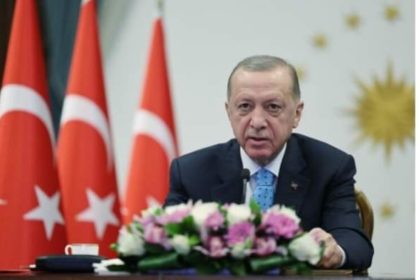By Adeyemi Adekunle
In a ruling on Wednesday, the Economic Community of West African States (ECOWAS) Community Court of Justice found the Nigerian government guilty of multiple human rights abuses during the EndSARS protests in October 2020. The court’s decision marks a significant victory for the victims and a stern rebuke of the government’s heavy-handed response to peaceful demonstrators.
The case centered around the events of October 20 and 21, 2020, at the Lekki Toll Gate in Lagos, where security forces were accused of using excessive force against protesters demanding the disbandment of the Special Anti-Robbery Squad (SARS).
The applicants, including well-known DJ and activist Obianuju Catherine Udeh (popularly known as DJ Switch), Perpetual Kamsi, and Dabiraoluwa Adeyinka, provided harrowing testimonies of the violence and its aftermath.
Court Findings and Rulings
The court ruled that the Nigerian government’s actions breached several international human rights standards, specifically citing violations of articles 1, 5, 6, 9, 10, and 11 of the African Charter on Human and Peoples’ Rights. Judge Rapporteur Koroma Mohamed Sengu, who delivered the judgment, emphasized that the government’s disproportionate use of force and subsequent treatment of protesters were inexcusable.
In a detailed judgment, the court mandated the Nigerian government to pay N2 million in compensation to each victim named in the suit. This ruling is not only a financial reprieve for the victims but also a symbolic acknowledgment of their suffering and the state’s culpability.
Victims’ Testimonies
DJ Switch, the first applicant, recounted how soldiers opened fire on peaceful protesters, resulting in numerous deaths and injuries. Her live-streaming of the incident brought international attention to the crisis but also made her a target. She testified that she received threatening phone calls, forcing her into hiding and eventual asylum.
Perpetual Kamsi, responsible for the welfare of the protesters, described the chaos that ensued when soldiers began shooting after a power cut at the toll gate. She was hospitalized due to tear gas inhalation and provided a vivid account of the panic and the brutality faced by protesters.
Dabiraoluwa Adeyinka barely escaped being shot and witnessed the refusal of soldiers to allow ambulances to assist the injured. She later saw victims receiving subpar treatment in hospitals and faced threats and constant surveillance after taking over their care with colleagues.
Government’s Defense
The Nigerian government, represented by a legal team, denied all claims made by the applicants. They argued that the protesters unlawfully assembled at Lekki Toll Gate and that their agents followed strict rules of engagement, neither shooting nor killing protesters.
The government accused DJ Switch of inciting the crowd through her music and social media posts, alleging that she stirred disaffection against law enforcement agents targeting escapee members of Boko Haram and bandits.
The defense further contended that Perpetual Kamsi’s logistics support to protesters indicated her backing of a violent protest, while the treatment of the injured was managed by the Lagos state government. The federal government claimed that the applicants failed to provide credible evidence to support their allegations.
Court’s Directive and Future Implications
Despite the government’s defense, the court found it guilty of violating the applicants’ rights to security of person, prohibition of torture and cruel, inhuman, and degrading treatment, freedom of expression, assembly, and association, duty to investigate human rights violations, and the right to an effective remedy.
The court has directed the Nigerian government to adhere to its obligations under the African Charter on Human and Peoples’ Rights. It must investigate and prosecute its agents responsible for these violations and report back to the court within six months on the measures taken to implement this judgment.
This ruling by the ECOWAS Community Court of Justice serves as a crucial reminder of the importance of upholding human rights and the rule of law. It underscores the need for accountability and justice for those who suffered during the EndSARS protests.
As Nigeria grapples with this judgment, the international community will be watching closely to ensure that the government follows through on its commitments and upholds the rights of its citizens.
The decision marks a significant step towards justice for the victims of the Lekki Toll Gate incident and sets a precedent for addressing human rights abuses in Nigeria.
As DJ Switch and other applicants celebrate this legal victory, the focus now shifts to the Nigerian government’s response and its efforts to rectify the wrongs committed during one of the country’s most tumultuous periods in recent history.




